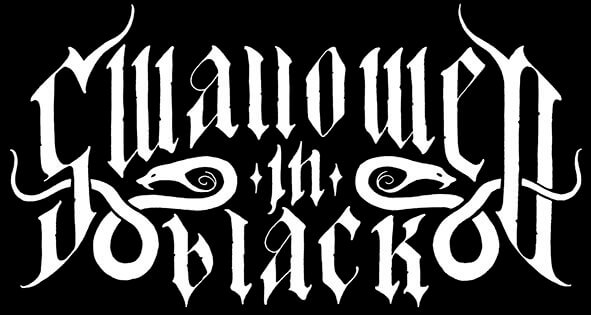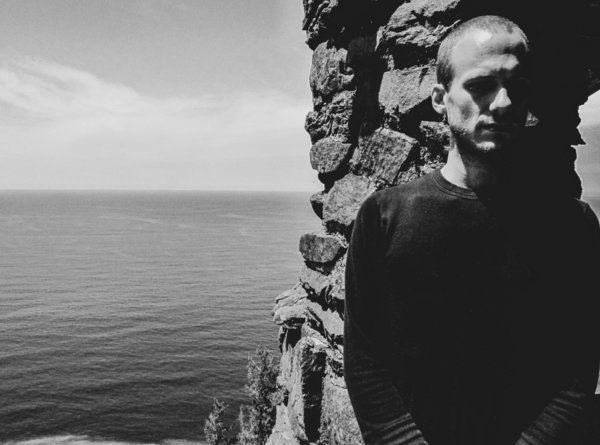“HUMANKIND WOULD BE BETTER OFF IF RELIGIOUS DOGMAS AND FAITH DISSOLVE ALTOGETHER” – A.L.N. (MIZMOR)
Armed with the empirical evidence provided by hard science, introspective Mizmor creator A.L.N. concluded that god is counterfeit and that humans have no ultimate purpose or meaning. Contemptuously, the Portland, Oregon based truth seeker cast aside a once strongly-held Christian belief system, emphatically rejecting blind faith and embracing the cold, nihilistic reality of atheism. As Mizmor’s monumental third full-length ‘Cairn’ clearly depicts, the journey towards enlightenment has been a harrowing one…
 We’ve established that there’s no god (I’m not going to honour something that doesn’t exist with a capital letter). It’s beyond the bounds of possibility that a supreme being created the universe and then retreated into the clouds to take a back seat and watch from a distance for all eternity. Science has proven otherwise. The Big Bang and evolution provide the real answers, surely?
We’ve established that there’s no god (I’m not going to honour something that doesn’t exist with a capital letter). It’s beyond the bounds of possibility that a supreme being created the universe and then retreated into the clouds to take a back seat and watch from a distance for all eternity. Science has proven otherwise. The Big Bang and evolution provide the real answers, surely?
“The existence of god is highly improbable in the face of centuries of scientific discovery. Still, it is not beyond the bounds of possibility; science has not disproven god nor proven his absence. Science has discovered things that render god as an explanation unlikely and unnecessary, especially the Abrahamic god (of the Bible, for one). The theories of evolution by natural selection and the Big Bang, for example, when fully expounded by scientists, don’t leave much room for a god who is pulling the strings behind the scenes. It’s simply not necessary because the mystery has been expelled. People used to think that storms and natural disasters were caused by angry gods; we now understand the natural reasons behind how these events unfold (weather patterns, seismic activity, etc.) and no longer need to assume god is punishing people when hurricanes and tsunamis occur. There is a natural, physical cause and effect relationship responsible. This is just one of many examples where the discovered law of nature by the scientific method has replaced its magical-thinking counterpart. The true spirit of science makes the best possible educated inferences given the evidence. If we value science and hold reason and the empirical evaluation of evidence in high regard, we must maintain a certain degree of humility. Personally, I am an atheist who values science. Given the evidence, I think the Big Bang theory and the theory of evolution by natural selection are currently the best explanations of how the universe came into existence and how we humans came to live in it, respectively. However, new evidence comes in all the time and causes revisions to what, at one time, were the best explanations given the facts. It is this same value system that would compel me to believe in god if there were strong enough evidence for his existence. As it is, there is not (in my interpretation of the data). The difference is, in the true spirit of dogma, that a person of faith would likely tell you that there is nothing that could change their mind about the existence of god. I find it very hard to argue for the truth of the god of the Bible, or even just a god who is personal, knowable and invested in your every waking moment. But if you want to believe in the god of Spinoza or Einstein, a god who is merely defined as the forces of nature, a god who is all the natural processes responsible for matter and life, then be my guest (this is more of deistic position than a theistic one at this point). I still think it’s entirely unnecessary and ultimately confusing for others to call consciousness, or the forces of nature (gravity, electromagnetism, strong / weak nuclear forces) god, but if your view of god doesn’t fly in the face of all the findings of science (like believing in a young earth / universe or that humans are distinct from the animal kingdom due to their having souls), I am less concerned. If there’s a god, he must be the god of science. Still, I personally think humankind would be better off if religious dogmas and faith dissolve altogether. It is of utmost importance to value science chiefly in terms of how we see the world / universe and ourselves within it.”
Personally I never entertained the concept of a greater power in the conventional, biblical sense. Not that I bothered to delve into theology in any detail, but I always felt that the fables from the bible were incredibly far-fetched. I believe your own journey has been different and there was a time in your life when you nurtured some semblance of faith (for want of a better word)?
“I was raised Evangelical Christian. As a child I believed wholeheartedly. As I got older I grew to reject the faith, living a mostly secular life and thinking more agnostically. However, when I was in my late teens / early twenties, I had a conversion experience whereby I came to fully embrace Christianity for myself, as an adult, no longer just a follower of my parents’ religion. For about two years I was a devout, practicing Christian. I spent time abroad studying the Bible, was immersed and active in my church, and was all-in, so to speak. It wasn’t “a semblance of faith,” it was full blown. There are a lot of supernatural elements in the stories of the Bible, but a lot of the stories have some truth to them in a geographical / historical sense. The Jews are a real people, Israel a real nation, Jesus a real person (it’s widely believed even by respected seculars anyway), etc. The Bible is still full of contradictions and discrepancies even within a historical view of the stories, but at the end of the day it feels less like reading a mythology / lore and more like a history book (it’s a combination of the two I see now, and the first adulterates the second). For me, when I was a Christian, belief in the supernatural parts came later. At first, I was drawn in by the person of Christ. Jesus is central to the Christian Bible and faith and being enraptured with his loving character was the cornerstone to my faith. Obviously, I had many doubts, some of which related to the miraculous claims of the Bible. But I was taught not to confront the most unbelievable content first. The example drawn for me was, “in math, you don’t learn calculus first. You learn arithmetic and then algebra and only then are you able to begin to understand calculus.” A bit of a cop-out answer, but I focused on deepening my relationship with Christ through prayer, worship, the scriptures and service in hopes that the more unbelievable parts of the text would make more sense at some point. Eventually, I think I just decided that I believed all of it, even if I couldn’t explain it, out of humility because I trusted god. Unfortunately, I think this lack of critical thinking is typical of believers, but if you believe in an all-powerful god who created the universe, turning water into wine is not an obstacle to your reason. A mixture of nature, nurture, personal experience and coincidence lead people to suspend disbelief in the name of faith in god. I was indoctrinated as early as infancy, which in my opinion does a lot to explain my predisposition for faith. Because of this I am also statistically more likely to return to my faith, which I did, and am now pretty committed to avoiding at all costs, for good reason.”
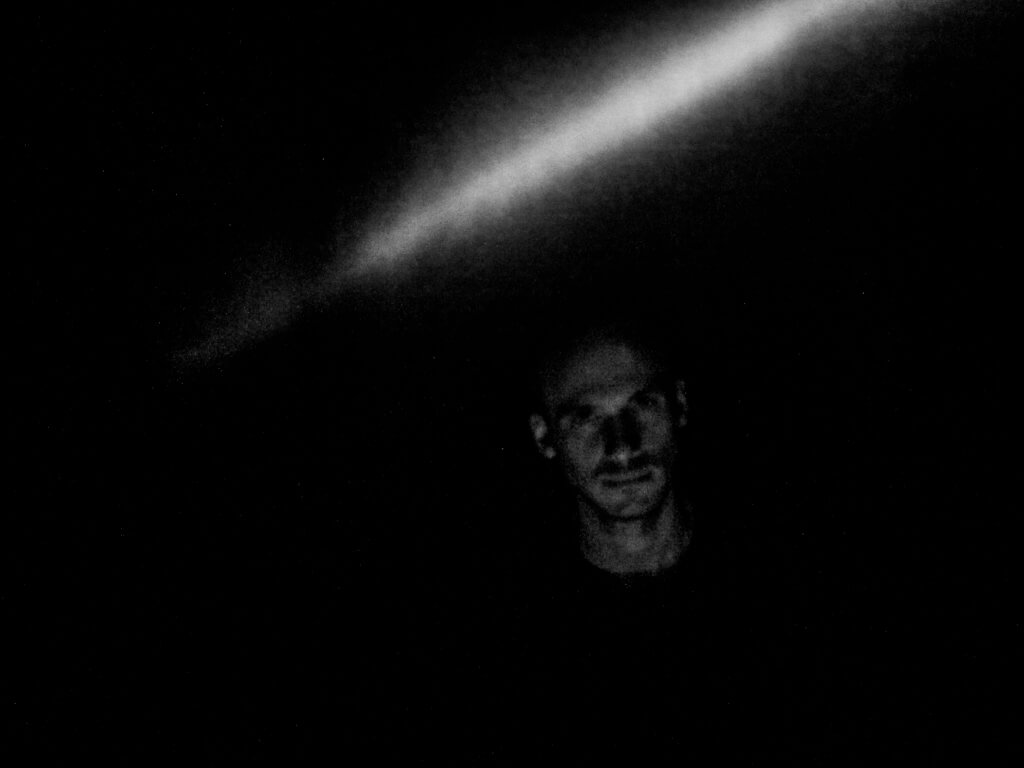 Did you feel a weight lifted off your shoulders once, having examined things fully, you emphatically ruled out the possibility of god being viable? And what was the clincher or turning point for you? What was it that finally convinced you that it was all a big scam?
Did you feel a weight lifted off your shoulders once, having examined things fully, you emphatically ruled out the possibility of god being viable? And what was the clincher or turning point for you? What was it that finally convinced you that it was all a big scam?
“Yes, I absolutely felt a weight lifted once I realized not only that I actually didn’t believe anymore, but that I really was finally an atheist now. That’s what ‘Cairn’ is. And it’s been an eight-year journey away from Christianity full of sorrow, hopelessness, confusion, guilt and fear. There wasn’t really a definitive moment for me, more a long slow process of falling away and rebuilding. What made me turn away was the cognitive dissonance I felt in believing in the Bible and living in the real world, a mixture of contradictions and false promises in the Bible. The world I saw out there and the personal experience I was having and feeling inside was not what the Bible described. A huge part of it was my depression. I’m melancholic and a thinker by nature; I have the tendency to obsess and the critical thinking part of my brain just couldn’t find peace in the Bible as the lens of reality. Also, for the most part I don’t think faith / religion / god / christianity / etc. is a scam. There certainly are those people out there, abusers and hypocrites of all sorts, no doubt, and cults are riddled with scammers, indeed, but the world of faith is mostly made up of good people who honestly believe and are just doing what they think is right, given their interpretation of the truth of reality (these ideas and actions can of course still ripple out to negatively affect the lives of others though, despite good intentions). This goes as much for the clergy as it does for the layperson, shepherds and sheep alike. I never felt like anyone was trying to trick me – they believed just as much as I did. And this goes all the way back. This is of course open to debate but it’s my personal opinion that Christ and his apostles all believed too. They were all told a story since birth, a story of the Messiah coming to liberate Israel. They were all indoctrinated into their religion (Judaism), just like I was into mine. It’s been said that Jesus either was who he claimed to be (God incarnate, the Messiah), or else was a liar, or a lunatic. But I think that he was just honestly mistaken, probably having been told special things about himself by his religious parents since birth. That belief was nurtured and grew deep roots and he had the right kind of personality and lived in a tense social environment; he attracted followers until he was enough of a threat to the Roman Empire that he was killed. The crucifixion happened, but there was nothing supernatural about it.”
From reading some of your online posts, I gather that this was a phase in your personal development that filled you with anger. Who was that rage directed towards? Those who perpetuate the lie? Yourself for not questioning them sooner? Everything and everyone?
“Although I was filled with many negative emotions, anger is not one of them. Overall, I felt deeply sad, and that emotion is what I’ve injected Mizmor’s music with. Sorrow, longing, bitterness, but not anger. As a Christian, you (supposedly) develop a personal relationship with the living Christ through the indwelling of the Holy Spirit. In addition to being enamored with the kind, loving character of Christ on the page of the text, you actually gain access to constant communion with him. I know that sounds strange (and it is), but suffice to say Jesus becomes a significant part of your life. The triune God of Christianity (father, son, and spirit) takes up considerable bandwidth in the inner life of the Christian. You’re born again; in God you now have a new father, best-friend, advocate, teacher, redeemer, brother, even spouse (as the church is the bride of Christ). After nurturing this relationship of utmost importance for a couple years, I felt utterly bereft when my faith was lost. I loved Jesus, he was everything to me and then all of sudden he became a ghost, an illusion. I’ve previously described the experience as watching my best friend turn to ash in my arms. It broke my heart. And in addition to the personal, relational aspect of it, my entire worldview, as informed by the Bible, shattered. I felt like I had and knew nothing. My entire epistemology had ruptured. And I mourned that loss. That’s what Mizmor is. I directed these emotions toward God. In 2012 I wrote and recorded the first Mizmor album as a way of dealing with these emotions. I was losing my faith, but still struggling, and the album was my final prayer to God. Mizmor means “psalm” or prayer, melody, song, etc. and that whole first album is addressed to God, reading much like one of the darker psalms of the Bible (they don’t just praise the Lord, they wrestle with him sometimes too). That was the only Mizmor album literally addressed to God. I’ve continued to explore the theme of my loss of faith, but after that point I was agnostic before identifying as an atheist.”
What belief system do you have now? Would you classify yourself as an atheist or a non-believer of some sort? Luciferianism and Satanism look interesting, as do most of the anti-god philosophies… Or do you just belief in chaos? Things are just random and out of control, so all we can do is navigate the turbulence to the best of our ability and try to be somehow content?
“I am an atheist. I do not believe in god, the soul or a supernatural realm of any sort. I currently consider myself a monist, meaning I believe reality is comprised of only one substance. For me, that substance is matter, as opposed to mind, or both (dualism). I take a physicalist/materialist view in terms of the phenomenon of conscious, though this is still an open discourse in the science community. My personal opinion is that consciousness is a result of physical, biochemical processes and over time its mystery too will dissolve as we understand more about it. Chaos is the prevailing force in our universe. Though matter superheated from the energy of the Big Bang has clustered together to form planets, one of which eventually cooled, formed an atmosphere and liquid water, which dissolved minerals that combined with electricity to bring about amino acids necessary in forming the first biological replicators to break down energy, which evolved into living organisms, eventually with brains, that became increasingly complex until becoming conscious (as a brain whose simulation of the world becomes so complex that including a model itself becomes necessary), eventually, due to the laws of thermodynamics, the universe will continue to expand and cool, and all life will die. Entropy is the winner here. We are all just here as a means of breaking down the energy on this planet. But that doesn’t mean we can’t have enjoyable or meaningful experiences while we are here.”
Isn’t it ironic that mankind has spent centuries, nay millennia, searching – yearning – for the meaning of life and the answer could be that there is no meaning? It’s sort of arrogant and presumptuous of us to assume we must have a purpose… It’s also incredibly selfish and naïve to expect another life after this one. Kind of hilarious when you think about it. Why not focus on living this absurd life, the only one we are guaranteed?
“I do think that humankind sets itself up to be extra special in the scheme of things. And we certainly are remarkable as a species, but not like that. We aren’t set apart from the rest of the animal kingdom with an immortal soul that gets to experience life after death. And I think therein lies the real issue – death. Anything but true death… we just can’t stand the idea of ceasing to be, decaying, and returning our atoms to the earth in the cycle of life. This is arguably the reason for all religions / faiths. It is ironic because life would not exist without stardust, astral debris containing all its necessary ingredients. From this process were we born and will we one day give back to. Yes, humans are arrogant in this way. Perhaps there is something to be said for the search though. Without all of our previously wrong hypotheses, would we ever have chipped away at the truth? Would science have been born if not for inquisitive human minds, however misguided, longing to make sense of their environment and their place within it? I’m not saying the creation of the gods, per se, as an answer was necessary, but it makes sense that our species, with the honed mental capacity to correlate cause and effect, theorize about other minds, and infer their intent (all for the sake of survival) and transpose this onto cosmos. It would be incredible if primitive hominids guessed correctly right out the gate and spared us the inferior explanations (that have caused us lots of harm), but alas, how could this ever have been possible? Technology and knowledge, like life, must evolve, must start somewhere. We cannot change the past but we learn from it, which has the potential to change the future, which is where we must apply our minds, whilst living in the present moment of this absurd, and only life.”
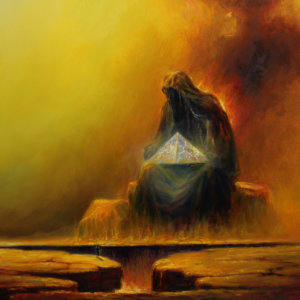 Besides the farce of religion, what else makes you so angry? There is an incredible, almost devastating sense of loathing, despair and raw emotion dripping off every note of Mizmor’s stunning third full-length, ‘Cairn’, which was released last year. The vocals are like those of a man possessed, perhaps not a man at all. It’s a harrowing journey yet beautiful at the same time. It sounds like an expression of very apparent inner turmoil but the more melodic passages that serve as a counterpoint to the fury suggest there is peace and acceptance there too…
Besides the farce of religion, what else makes you so angry? There is an incredible, almost devastating sense of loathing, despair and raw emotion dripping off every note of Mizmor’s stunning third full-length, ‘Cairn’, which was released last year. The vocals are like those of a man possessed, perhaps not a man at all. It’s a harrowing journey yet beautiful at the same time. It sounds like an expression of very apparent inner turmoil but the more melodic passages that serve as a counterpoint to the fury suggest there is peace and acceptance there too…
“My experience with religion was somewhat traumatic and expressing that pain is the basis for Mizmor. Again, I would describe those emotions as being more akin to sadness than anger. It is this melancholy that creates the melodic passages you hear. You are right in your perception of there being peace and acceptance on ‘Cairn’, though. I’ve been struggling with my loss of faith for years, using Mizmor as therapy to try and get some catharsis and healing and have only recently started to feel like that wound is no longer gaping open. I think the roots of this thing go really deep and there is a sense in which I will always be struggling and dealing with the aftermath of having the worldview fed to me since birth shattered. I don’t know exactly why it affects me so much, but it does. However, I am a much happier, healthier and more stable person than I was eight years ago when I first started losing my faith, and even more so than I was ten years ago when I gained my faith; I was so depressed as a Christian. If not for Mizmor, I’m not sure where I’d be right now. Pressing into my music and using it in a hyper-personal way, as a therapeutic tool, actually had results. I do feel a sense of healing now. It always helped, but it took a while to actually get far enough on the other side of it to feel I could make a statement of reflection, and that’s what ‘Cairn’ is. The acceptance is two-fold though. You not only must accept the wrong and flee from it, you must accept the alternative too, and that took some time for me. Facing a world and life that have no ultimate purpose or meaning can be depressing (and it still is sometimes), but it can also be empowering and beautiful. Whatever it is, it is the true reality and you would do well to accept it and make the most of it. It’s a daily, even hourly, struggle. But it is our struggle. The truth may hurt, but I personally value truth more than comfort. And it doesn’t always hurt.”
Not surprisingly, the album completely sold out first time around and is in the process of being repressed in all the formats. Your catharsis has resulted in music that people really want to hear. In a way, that must make it all worthwhile? Like, if you were happy all the time, Mizmor would not be so powerful, so please don’t cheer up too much…
“The public’s response to Mizmor has far surpassed anything I could have hoped for. I began the project with no intention of releasing the music; it was my personal journal, made just for me. Due to friends’ encouragement, I released the first album (2012) and made it more easily accessible for folks to listen and get copies of it. The degree to which Mizmor has grown has always been in direct relationship to people’s response to it. It has been a very gradual process. In 2016 I played live for the first time with the help of three of my closest friends in response to a friend/colleague inviting us to play a fest around the release of the ‘Yodh’ album; over the course of the next few years we played a handful of times, uniting for special occasions like festivals. This too has grown due to people’s response and in the fall of 2019 we went on tour for the first time. It was a short tour, five dates down the west coast, four on the east coast, and one in the Netherlands. Still, I could only hear people ask that I come to their town so many times before feeling somewhat responsible for bringing the live experience to them. I hope that is able to continue to grow in the future, however slowly, because there are still many places to visit. An incredibly powerful part of this whole journey has been folks letting me know how they can relate to my experience and how the music has helped them. The community of the ex-religious has let me know I’m not alone, and it has injected me with a new sense of purpose. To think that telling my story actually does some good in the world, however small, is huge to me. I don’t think I have to stay sad to continue to help people and the issues propelled by religions / cults. Conversely, I think it’s perhaps more powerful that sadness needn’t be the final resting place on this road. But one thing I know about myself, I’ve always felt melancholic on the inside, even since childhood, at least to some degree, and I’ve always felt the need to create music and art to deal with my inner thoughts and emotions. I quite simply must in order to survive. I’ve been doing this since I can remember; the genre and content has changed many times over the years and right now it’s called Mizmor and sounds like metal, but the process is an open book in my life. It’s always nice to have the music resonate with folks, but the whole purpose of making music like this is to make it out of personal necessity, and in that regard I’ve never cared if people like the music or not. It must be made either way. It is with this mindset that I will continue to turn my life into art and music.”
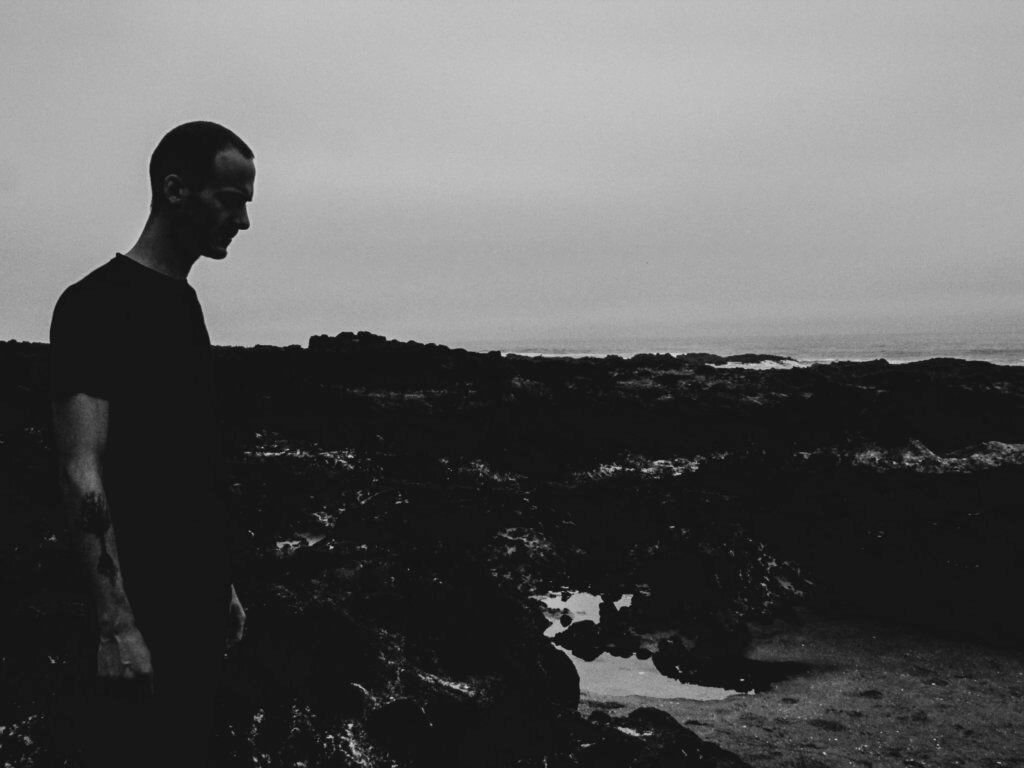 Although Mizmor is a one-man vision, the live band together under this banner has been receiving universal acclaim. Has this now become a vital element of the overall Mizmor experience?
Although Mizmor is a one-man vision, the live band together under this banner has been receiving universal acclaim. Has this now become a vital element of the overall Mizmor experience?
“At first, I considered this more of a bonus element to the Mizmor experience, the vital part being me recording music in my bedroom. The project has evolved though and, as I mentioned above, has come into the light of the realization that I’m not alone, this music helps others and is in that sense just as much for others as it is for me. Although people talked to me about how they can relate to the music prior to us playing live, the floodgates for those conversations were flung open after we played out more. Now that I know my fans a little more intimately and there is a sense of solidarity among us, the mission of playing live has become a more vital element of Mizmor. It will still stay more special / exclusive than full-time, road-dog type bands; I care very much about playing with my close friends, not random hired guns, and the four of us can only make it happen every so often. But I want to be out there telling the story, doing what I can to help dissolve religion and help the people hurt by it. It’s also a lot of fun to get these opportunities to travel and play music with my best friends. That’s a dream come true.”
How frustrating has it been to have that avenue cut off indefinitely due to the ongoing global pandemic? I noticed that unfortunately you had to cancel some fairly major gigs. And finally, have there been any positives to being forced to spend so much time at home? Have you been able to create much new music? If so, perhaps it might not be such a bad year after all…
“It’s definitely been difficult. The guys and I spent six months learning the full ‘Cairn’ set to go out and play five exclusive gigs over the course of the spring and summer, all of which have rightfully been cancelled due to the Coronavirus. All of our hard work getting shelved left me pretty depressed for a bit. For the past two years, I’ve somehow barely been able to live off of Mizmor. I don’t play many shows, but the ones I do make up a significant portion of my annual income. This has undoubtedly been a huge blow in that regard, but I have a whole lot to be thankful for at the same time. I’ve been able to continue to do my normal work from home, creating, selling, and shipping merch, promoting digital music, reissuing old albums, doing interviews, engaging on social media, etc. I’m physically healthy and super thankful for how supportive my fans have been during this time. The industry has done some helpful things as well, like Bandcamp doing one day every month where they waive their revenue share to funnel more money to the artists. I’m a little concerned about the back half of the year, with the shows cancelled and all, but I’m okay right now and all I can do is keep on keeping on and hope for the best. I’ve known from the get-go that music as income is extremely fragile and likely temporary, especially for someone making extreme music like me. If Coronavirus changes the music industry in a massive enough way that I am no longer able to make it work, so be it; it’s been an incredibly rewarding ride. Not having the live shows to prepare for anymore has opened up my schedule and yes, I have been able to create new music during this time. I’ve posted a series of sombre acoustic melodies on Instagram as offerings in these troubling times. I’ve also recorded an album. Unfortunately, I can’t say much about it at this time, but it is a collaboration with another artist and I’m super excited about it. That is certainly one of the silver linings to this whole situation.”
A.L.N. photos by Emma Ruth Rundle. ‘Cairn’ album cover: Mariusz Lewandowski
